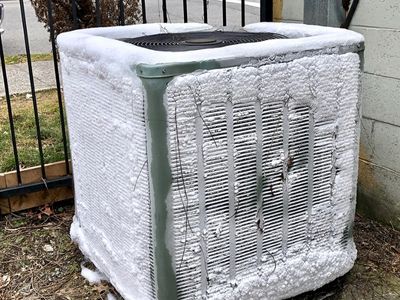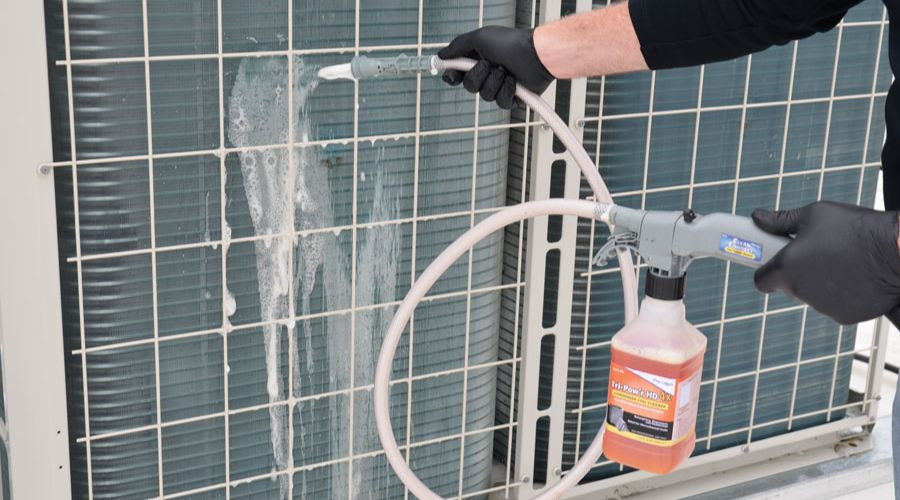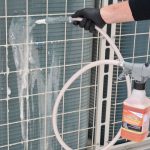Why Should Homeowners Get Professional Evaporator Coil Cleaning?
It's also a part of maintenance that's best left to the professionals - HVAC technicians use special tools, techniques, and chemicals to clean the coils without damaging delicate components like heat fins. They also use EPA-approved mold inhibitors and biocides to prevent contamination of the coils and condensate drain lines. This way, professional AC coil cleaning can improve indoor air quality, boost energy efficiency, extend the unit's life, and enhance indoor comfort.
So when should homeowners call for an evaporator coil cleaning service? It's often included in annual HVAC maintenance, but there are a few ways to tell if the coils are already dirty. This article will outline three common signs that the evaporator coils need to be cleaned.
The AC Isn't Producing Cool Air
 One of the clearest symptoms of dirty AC coils is a loss of cooling function. If the AC is running, but the house never gets cool, or there's warm air coming from the vents, it's a good bet that a dirty evaporator coil is to blame.
One of the clearest symptoms of dirty AC coils is a loss of cooling function. If the AC is running, but the house never gets cool, or there's warm air coming from the vents, it's a good bet that a dirty evaporator coil is to blame.The evaporator coil absorbs heat energy and water vapor from the air. The heat energy is transferred through the metal surface of the coil and into the chemical refrigerant inside (which is then pumped to the outdoor unit to release the heat), while the water vapor condenses into liquid form and gets drained away. Dust, grime, and mold can accumulate on the coils, forming a barrier that prevents the proper transfer of heat - and hinders the system's ability to cool the indoor air.
Frozen Evaporator Coils
 Another sign of dirty evaporator coils is the presence of frost or ice on the coils themselves (and/or the fins surrounding them). This occurs because the layer of dirt on the coil interferes with the heat transfer process and prevents the condensation from draining away properly. The coil will then grow colder than it's supposed to be and freeze the condensation in place. This typically has a snowball effect (no pun intended) wherein more, and more frost accumulates until the coil is frozen.
Another sign of dirty evaporator coils is the presence of frost or ice on the coils themselves (and/or the fins surrounding them). This occurs because the layer of dirt on the coil interferes with the heat transfer process and prevents the condensation from draining away properly. The coil will then grow colder than it's supposed to be and freeze the condensation in place. This typically has a snowball effect (no pun intended) wherein more, and more frost accumulates until the coil is frozen.A dirty evaporator coil can significantly hinder cooling function. Still, a frozen evaporator coil brings it to a grinding halt - the heat transfer process is virtually impossible through a thick layer of ice. A frozen coil can cause serious damage to the unit, so this problem demands an urgent response.
Some air handler units are in hard-to-reach places, such as an attic or crawl space, so it may be difficult to get a good look at the evaporator coils. Still, in many cases, the refrigerant line (a copper pipe that runs from the air handler to the outdoor condenser unit) may have frost on it, which usually indicates a frozen coil. If in doubt, homeowners should contact their trusted HVAC specialist to inspect the system.
The AC Is Running Longer Than Normal
Air conditioners cool the home in cycles - as the indoor temperature rises above the thermostat setting, the unit kicks on and runs until the correct temperature is achieved. Suppose the AC is running longer cycles than usual. In that case, it typically means that the system isn't generating cool air at the normal rate and can't keep up with the natural heat outdoors - often due to a dirty evaporator coil.
Longer AC run times can put a lot of undue wear and tear on the unit and drive up energy costs (ironically, abnormally short cycles have similar effects) - so it's best to address this issue as soon as it arises. And, of course, it's not a bad idea for homeowners to ask their preferred HVAC service company about AC coil cleaning as part of routine maintenance, so they can help prevent these issues altogether!
About 360 Air Tech
The BBB A+ Rated 360 Air Tech has served the Williamsburg community with pride and distinction for years. Their NATE-certified technicians are licensed, insured, background-checked, and drug-tested for every customer's safety and peace of mind. They offer transparent flat-rate pricing, same-day service, and a money-saving maintenance plan, so call them today for evaporator coil cleaning in Williamsburg, VA!
Distribution Links +
- htv10.tv
- wicz.com
- rfdtv.com
- snntv.com
- central.newschannelnebraska.com
- metro.newschannelnebraska.com
- midplains.newschannelnebraska.com
- northeast.newschannelnebraska.com
- plattevalley.newschannelnebraska.com
- panhandle.newschannelnebraska.com
- wpgxfox28.com
- lifestyle.mykmlk.com
- wtnzfox43.com
- lifestyle.3wzfm.com
- lifestyle.southernsportstoday.com
- lifestyle.thepodcastpark.com
- lifestyle.680thefan.com
- lifestyle.xtra1063.com
- lifestyle.953hlf.com
- lifestyle.rewind1019.com
- lifestyle.us983.com
- lifestyle.countrylegends1059.com
- lifestyle.967wshv.com
- lifestyle.1045thedan.com
- yournewsnet.com
- michigan.yournewsnet.com
- midwest.yournewsnet.com
- northeast.yournewsnet.com
- southeast.yournewsnet.com
- southwest.yournewsnet.com
- lifestyle.earl983.com
- west.yournewsnet.com
- lifestyle.maverick1023.com
- lifestyle.magic979wtrg.com
- lifestyle.1077lakefm.com

 American Standard
American Standard



